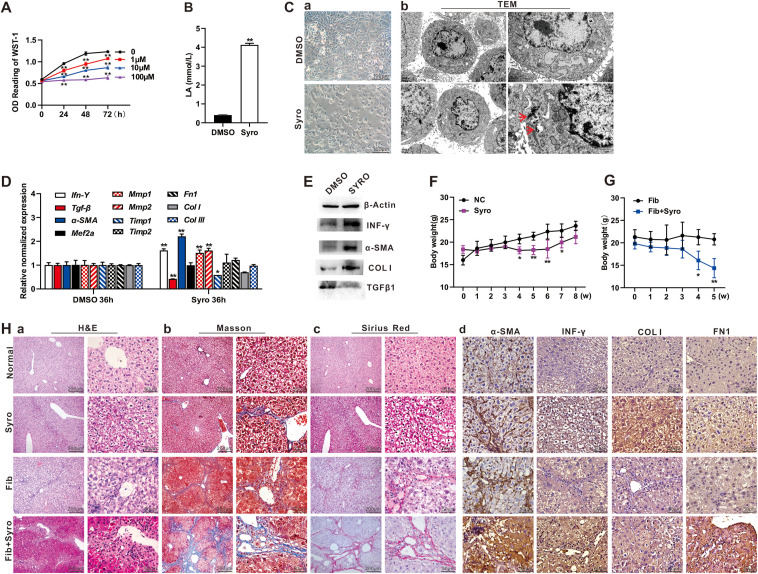
Syrosingopine, an anti-hypertensive drug and lactate transporter (MCT1/4) inhibitor, activates hepatic stellate cells and exacerbates liver fibrosis in a mouse model


Syrosingopine is an anti-hypertensive drug and can cause high intracellular lactate levels and end-product inhibition of lactate dehydrogenase by inhibiting the lactate transporters MCT1 and MCT4. Previous studies have shown that syrosingopine plays an essential role in the process of glycolytic blockade, ATP depletion, and cell death in cancer due to high intracellular levels of lactate.1,2 The liver is the largest digestive gland in the human body and plays a crucial role in regulating energy metabolism, as well as serving as an important site for drug metabolism. Liver fibrosis is one of the most common pathological changes in the liver, which is a dynamic, highly complex molecular and cellular process leading to the excess accumulation of extracellular matrix components sustained by a heterogeneous population of hepatic myofibroblasts. Fibrosis usually follows a chronic and long-term liver injury, which may progress to hepatic cirrhosis, hepatocellular carcinoma, and liver failure.3 The major driver of liver fibrogenesis is the activated hepatic stellate cells (HSCs), which are also the major cellular sources of excessive matrix protein secretion.4 In this study, we investigated the effects of syrosingopine on HSCs in the progression of liver fibrosis.
